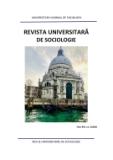PARENTAL STYLES AND MODELS AND EMOTIONAL DEVELOPMENT IN ADOLESCENCE
PARENTAL STYLES AND MODELS AND EMOTIONAL DEVELOPMENT IN ADOLESCENCE
Author(s): Claudia SălceanuSubject(s): Social psychology and group interaction, Developmental Psychology, Health and medicine and law, Family and social welfare
Published by: Ediktura Beladi
Keywords: Self-esteem; inhibition; emotional stability; sociability; sensibility; parental style; adolescence;
Summary/Abstract: The family has undergone a permanent evolution over time, leaving its mark on the transformations of economic and social life, morals, traditions and customs. It can be said that between the family, on the one hand, and social life as a whole, on the other hand, there is a permanent process of influence, conditioning, and adjustment. A sample of 61 adolescents, aged between 16 and 19 years old, has been assessed with Rosenberg’s Self Esteem Scale, the Freiburg Personality Inventory and the Inventory for measuring the parental education models (EMBU). The objectives aim to identify: (1) adolescents’ perception on parental styles and models; (2) the difference in the development of emotional personality traits of adolescents based on the perceived parental style. Results show that boys report a low level of involvement of fathers in their lives, a low level of parents' willingness to cooperate and the efforts made by their parents to cooperate with them. Subjects perceive the mother's behavior as more affectionate (38%), although in the desire of mothers to give them as much security as possible they become overprotective. The low level of parental support, as reported by the study subjects, translates into the fact that the subjects perceive the parents' behavior in relation to their educational experiences as less supportive, a low tendency of parents to express satisfaction and appreciation. There is a direct correlation between extraversion / introversion and parental educational behavior of performance orientation. And also, 45% of the studied persons manifest a series of specific characteristics in the spheres of impulsivity and emotional instability. The importance of these results is discussed in the end.
Journal: Revista Universitară de Sociologie
- Issue Year: XVI/2020
- Issue No: 2
- Page Range: 130-142
- Page Count: 13
- Language: English

